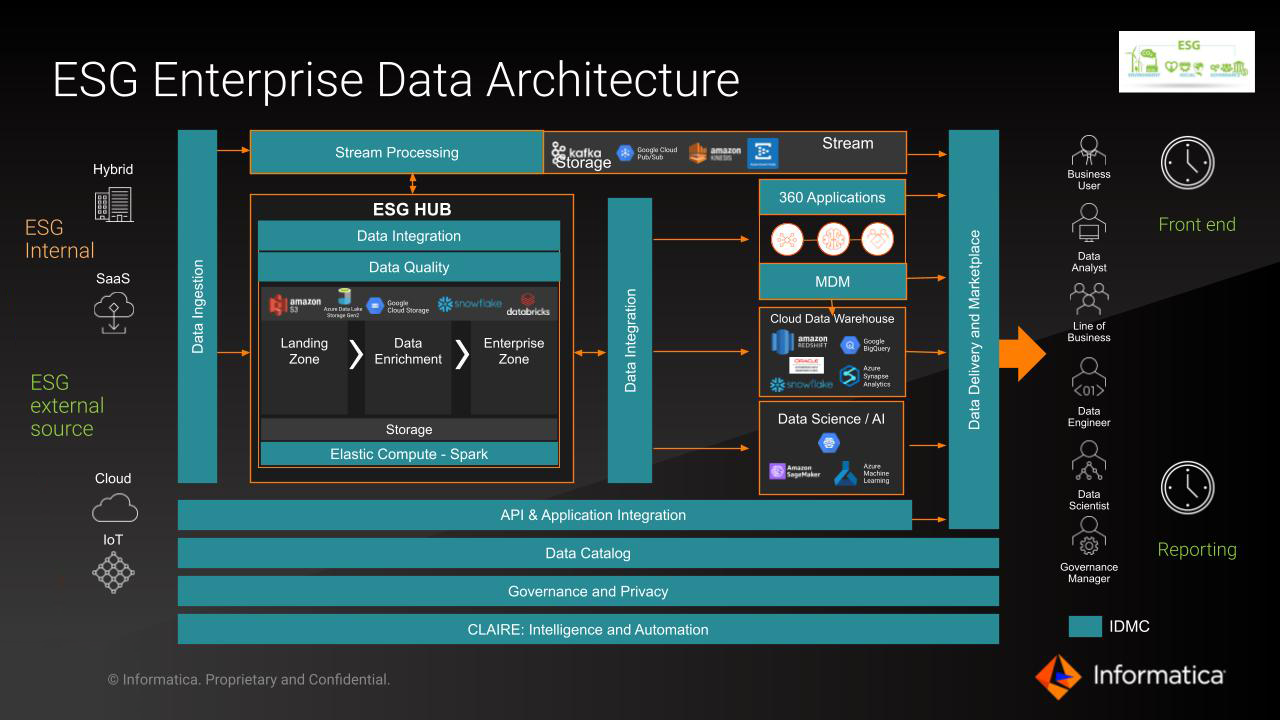ESG Practices and Data Governance: The Dynamic Duo for Achieving Success.
What’s the relevance of Data Governance and Management for ESG practices and its success?
Data Governance is a Data Management discipline which plays a crucial role in ESG practices. To effectively measure and report on ESG outcomes, companies need reliable and accurate data. Data Governance ensures that the data used for ESG reporting is of high quality, consistent, and trustworthy. It establishes processes and policies for data collection, storage, and management, ensuring that the data is accurate, complete, and accessible to relevant stakeholders.
Furthermore, Data Management is essential for ESG practices as it involves the organization, integration, and analysis of data. Companies need to collect data from various sources, both internal and external, to assess their environmental impact, social responsibility, and governance practices. Data Management helps in aggregating and analyzing this data to generate meaningful insights and metrics for ESG reporting. It enables companies to identify areas for improvement, set targets, and track progress towards their ESG goals.
Data Governance and Management also contribute to the credibility and transparency of ESG reporting. With proper data governance practices in place, companies can ensure the accuracy and reliability of their ESG data. By implementing robust data management processes, companies can enhance the quality and integrity of their ESG reporting.
ESG Sustainability Data Management hub: a centralized approach to develop corporate sustainability reporting.
Undoubtedly, ESG data management has become a critical aspect of corporate sustainability reporting. Collecting, integrating and managing ESG data from various sources can be time-consuming, costly and prone to errors without it.
An ESG sustainability data management hub can help companies develop a centralized approach to manage their ESG data: a solution that can integrate ESG data from various sources such as carbon emissions data, ESG rating agency data and supply chain ratings data.
Data governance and quality can then be applied to ensure the data is accurate and consistent.
A centralized hub of data can become the golden source of truth for all ESG data, with all the controls required by regulators, and enable a comprehensive strategy to address ESG business imperatives.

In conclusion, data governance and management are crucial as investors, stakeholders, and regulators increasingly rely on ESG information to make informed decisions. By embracing ESG practices and data governance, companies can achieve their sustainability goals, build trust and credibility with different involved parties and decision makers, to create a more sustainable future for all.
So, where to start?
Triade stands ready to support and supercharge your journey to ESG practices. Talk to our consultant team and learn more about ESG Data Management and Governance. Get in touch with our specialist and learn everything on Data Governance for ESG practices.




